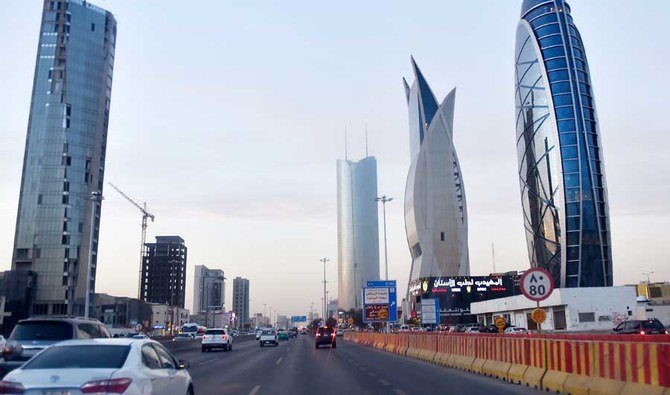
- ARAB NEWS
- 18 Apr 2024

The issue of corruption is a concern for many governments — including Saudi Arabia — as it can have serious economic and social consequences.
It can affect a country’s credit rating and access to capital, as well as affecting qualitative foreign direct investment inflows.
It will also harm government finances when the cost of bribes and kickbacks are added to national projects.
At a societal level, corruption can seep in like a hidden cancer and become accepted as a way of life in getting things done at all levels of transactions.
With Saudi government budgets running at an average of SR1,040 billion, it is estimated that hidden bribes range from 2 to 3 percent of the national budget, around SR25 billion per annum, a considerable sum that the government can make use of for social or capital spending.
This is a main driver for the Kingdom’s current approach to anti-corruption, which was initially launched in 2007 with the National Strategy for Maintaining Integrity and Combating Corruption, bringing together principles of Shariah, domestic and international law.
In 2011, NAZAHA, or the National Anti-Corruption Commission, was established and became the prime regulatory body in Saudi Arabia for monitoring the implementation of the strategy, with NAZAHA exercising its jurisdiction over public sector companies owned at least 25 percent by the state. It is fully independent and reports to King Salman. It does not answer to any other state institution.
In 2017, King Salman established the Supreme Anti-Corruption Committee composed of leaders from all relevant government ministries to support NAZAHA and to prosecute corruption at the highest level of government, with the two organizations working in unison to protect the state’s interests.
NAZAHA’s investigations have had an electrifying effect in Saudi Arabia, with the publication of its news announcements regarding the number of corruption cases being investigated, with around 30 announcements made from 2020 to date.
These involved nearly 2,000 cases, including allegations of embezzlement, abuse of power, money laundering and bribery. The cases included high-ranking public officials and citizens from all walks of life and social standing.
The introduction of a level playing field has had an enormously positive psychological impact on the Saudi business sector. For international companies invited to open a regional head office in Riyadh in order to obtain government contracts, the NAZAHA initiative is a positive step to ensure that these companies are not exposed to bribery.
To achieve its objectives, NAZAHA has used modern technology to reach out and increase the effectiveness of its supervisory capacity. A key element for gaining the population’s trust in reporting corruption cases has been whistleblower protection, which is still a relatively underdeveloped legal concept in the Middle East.
In Saudi Arabia, whistleblowers are protected via Royal Decree No. 41043 issued in May 2018, with full protective measures applied to anyone who reports corrupt activities.
The Saudi government has taken steps to ensure that the Saudi corporate sector is also under wider scrutiny for possible fraudulent activities by issuing Company Law Royal Decree M/3 of in 2015, whereby in certain circumstances shareholders and company directors are held personally liable for instances of corruption.
These new powers have been implemented by the Saudi Capital Market Authority and by the Saudi Stock Market, the Tadawul, to ensure that the Kingdom remains the best regulated and most attractive destination for foreign qualified investors.
Sometimes overzealous anti-corruption oversight can have unintended consequences, with ministers or officials delegated with executing their country’s giga-project refusing to start out of fear that they might be accused of corrupt practices and bribes.
This has happened in Gulf countries with parliamentary oversight and powers to grill ministers such as in Kuwait, and more recently in Iraq, with the result that many projects remain unfulfilled or delayed. A balance has to be found.
In the Middle East, one often hears the term “wasta,” stemming from the Arabic root for “middle” or “medium,” indicating there is a middleman or connection between somebody who wants something done and someone who is in a position to provide it.
Although the effects of wasta may be positive, they are usually considered negative. On a positive side, the wasta social network concept of interpersonal connections is often rooted in family and kinship ties, which are highlighted in many cultures and religions. For example, the Islamic Ummah stresses the universality of family paradigms of social order.
NAZAHA has ensured that the discussion about corruption or the darker side of wasta is no longer a taboo issue revolving around eradicating the abuse of entrusted public sector power for private gain. This is essential for a country that wants to see more foreign investors pouring in money.